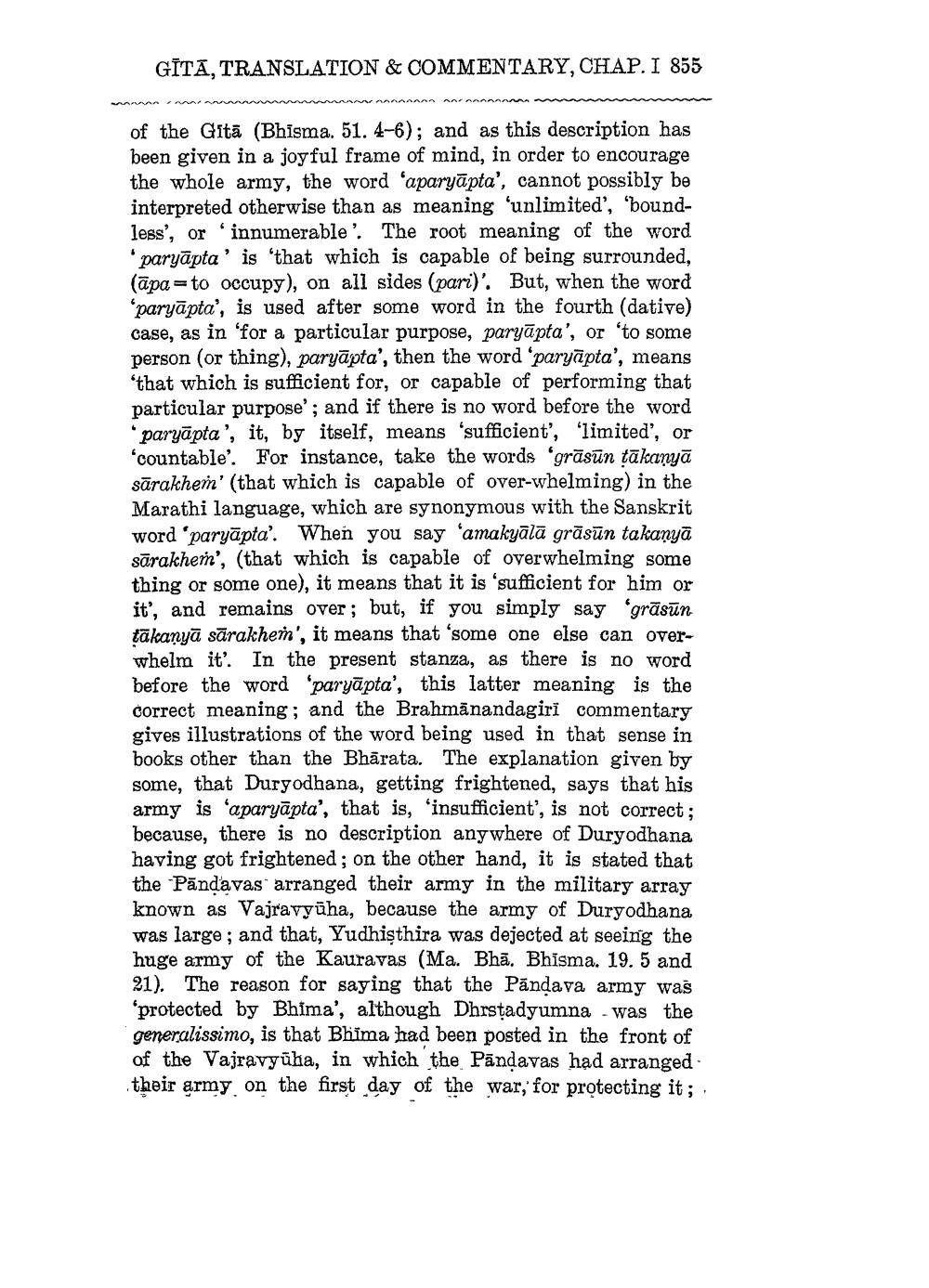________________
GĪTĀ, TRANSLATION & COMMENTARY, CHAP. I 855
of the Gitā (Bhisma, 51. 4-6); and as this description has been given in a joyful frame of mind, in order to encourage the whole army, the word 'aparyāpta', cannot possibly be interpreted otherwise than as meaning 'unlimited', 'boundless', or 'innumerable'. The root meaning of the word 'paryāpta’ is that which is capable of being surrounded, (āpato occupy), on all sides (pari)'. But, when the word ‘paryāpta', is used after some word in the fourth (dative) case, as in 'for a particular purpose, paryāpta', or 'to some person (or thing), paryāpta', then the word 'paryāpta', means 'that which is sufficient for, or capable of performing that particular purpose'; and if there is no word before the word * paryāpta', it, by itself, means 'sufficient', 'limited', or 'countable'. For instance, take the words 'grāsūn tākanya sārakher' (that which is capable of over-whelming) in the Marathi language, which are synonymous with the Sanskrit word 'paryāpta'. When you say 'amakyālā grāsūn takanya sārakhem', (that which is capable of overwhelming some thing or some one), it means that it is sufficient for him or it', and remains over; but, if you simply say 'grāsün tākanyā sārakheñ', it means that 'some one else can overwhelm it. In the present stanza, as there is no word before the word 'paryāpta', this latter meaning is the correct meaning; and the Brahmānandagiri commentary gives illustrations of the word being used in that sense in books other than the Bhārata. The explanation given by some, that Duryodhana, getting frightened, says that his army is 'aparyāpta', that is, 'insufficient', is not correct; because, there is no description anywhere of Duryodhana having got frightened; on the other hand, it is stated that the Pāndavas arranged their army in the military array known as Vajravyuha, because the army of Duryodhana was large; and that, Yudhisthira was dejected at seeing the huge army of the Kauravas (Ma. Bhā. Bhisma. 19.5 and 21). The reason for saying that the Pandava army was ‘protected by Bhima', although Dhrstadyumna - was the generalissimo, is that Bhima had been posted in the front of of the Vajravyuha, in which the Pāndavas had arranged their army on the first day of the war, for protecting it;




